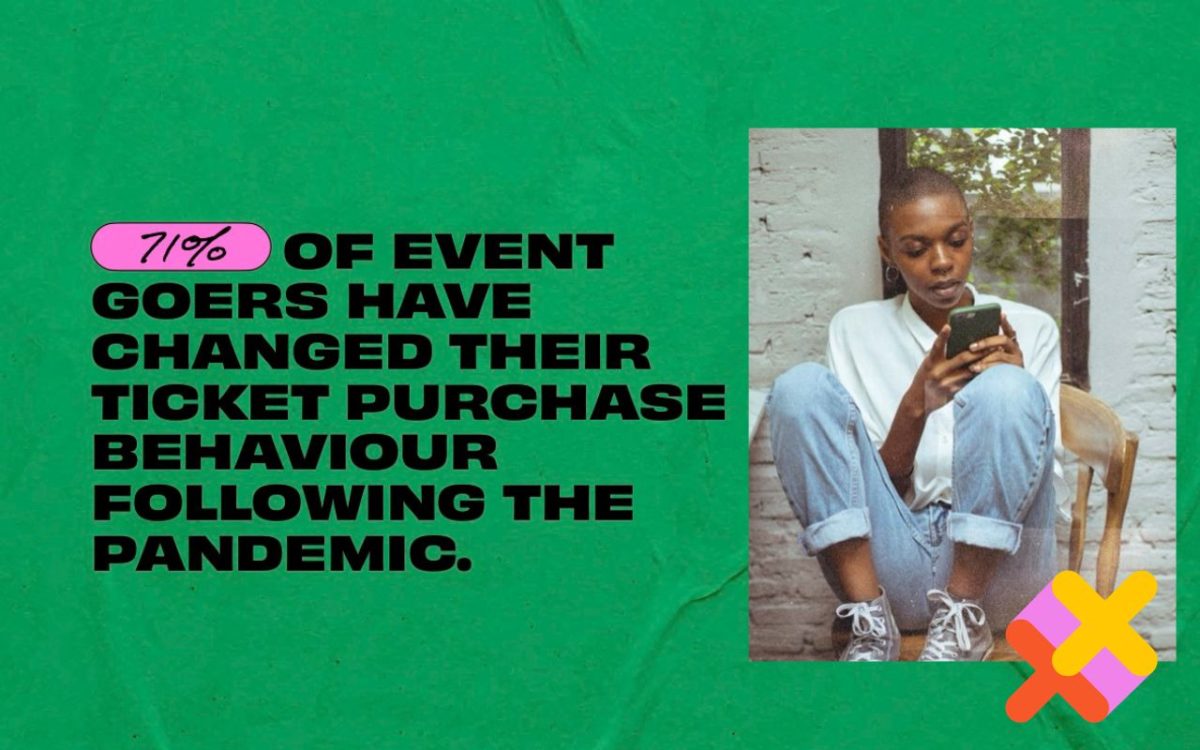Events are back, but the crowd has changed. And we’re not talking about capacity, but the way fans buy tickets to events. 71% of event-goers say they have changed their ticket purchasing behaviour in 2022.
After a long hiatus, promoters are announcing shows and festivals earlier than ever, trying to beat each other to market. At the same time, audiences are holding out on buying tickets — and when they buy, it’s not a commitment to the event.
With this in mind, is it time for event promoters and organisers to shorten their on-sale window?
To learn more, we partnered with entertainment and culture marketing specialists, Bolster, to survey Aussie event-goers on their behaviour and attitude toward events in 2022. The result is All Options Open, a report on the ticketing state of play. In this article, we’ll dive more into on-sale windows and what drives event-goers to buy tickets to your shows.
Delayed tickets sales are causing budgeting nightmares for events
Combining the results from our survey with industry sentiment, one thing is clear: Audiences are buying later. Much later. And it’s causing big headaches for event organisers and promoters.
Sam Adams-Nye from Humanitix has noted this trend from sales on their platform. “People are hedging their bets and waiting until mid-sale and last minute,” says Adams-Nye.
Event promoters agree, noticing big spikes in ticket sales days out from events. There are many factors contributing to this shift in behaviour, including:
- With a flood of shows hitting the market at once, consumers are spoilt for choice
- Uncertainty from audiences around cancellations and lineup changes
- Recent extreme weather events impacting outdoor festivals and shows
- Financial hardship for attendees due to rising costs of living and inflation
- Wanting to save for other experiences such as travel
All in all, fans don’t have the same urge to buy tickets well in advance anymore. It’s adding a lot of pressure on all sectors of the live music industry – from venues to production teams. After all, it’s hard to plan for a party when you’re not sure who’s coming.
“The last-minute buying nature of fans is hard to manage and hard to budget for,” says Taylor James from Lemon Tree Music.
When are people buying tickets and what should your on-sale window look like?
Our survey data was clear on one thing: single-day events and smaller band-room shows should be sold in shorter bursts, while international concerts and yearly events have more wiggle room to go early.
As you can see from the chart above, major stadium events still have the freedom to announce early, whereas local concerts are likely to sell the most tickets 2 weeks – 3 months before the event. Single-day festivals can have a successful 6-month on-sale window and camping festivals can hedge their bets on 6-12 months.
While it might seem scary to shorten on-sale windows, audiences are thinking about the next closest event. To keep your event front of mind, ensure the date feels tangible.
Event-goers want more flexibility before buying tickets
Regardless of the length of on-sale, the biggest thing influencing ticket buying is the need for flexibility. Tickets are no longer a commitment, but an option to attend an event. It’s what’s driving audiences to buy last minute and look to resale to recover costs if their plans change.
84% of event goers are more likely to buy tickets knowing they can easily resell them later.
It used to be that if your plans changed, you had to try and find a friend to buy your ticket or take your chances on platforms like eBay, GumTree and Facebook. Getting access to a sold-out show involved either scaling a fence or paying extortionate costs to scalpers and scammers looking to profit on the back of events.
Now that there are simple and secure event-approved places to resell tickets (like Tixel), it’s become an expectation from ticket buyers that they will have options if their plans change. Our survey found that 68% of event-goers have resold an event ticket on a resale platform in the last 12 months. More than a third of fans (41%) will reconsider buying a ticket if resale isn’t permitted.
Tixel is also seeing a flurry of ticket trading in the days leading up to an event, supporting the idea that people are buying with the option to sell later. The number of people listing tickets within the last four days leading up to an event increased by 30% compared to pre-pandemic. These listings now account for more than half of all listings on Tixel.
In order to keep your on-sale window with enough time to plan and budget for your event, you need to offer audiences the flexibility to recover their costs if they need to sell. Promoting ease of resale will not only boost your earlier sales, but it will also improve your data so that you have the full picture of who is really coming to your events.
Treat resale as you would presale, by ensuring you are capturing data across this new cycle and using it to your advantage.
Get insights on Australia’s ticketing state of play
How can event organisers and promoters sell tickets to buyers who want to keep their options open, while also wanting tickets to hot sell-out shows? And in a time of cancellations and changed plans, how do you get ticket buyers to show up and spend money?
These are some of the questions we examine and answer in the full report, All Options Open. Download the full report at https://tixel.com/blog/ticketing-state-of-play.

